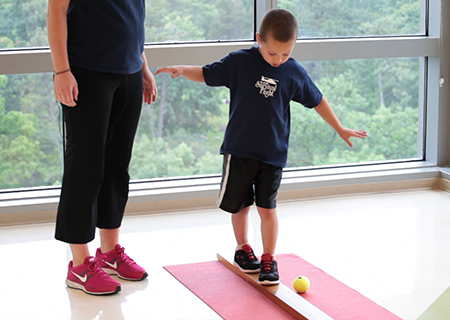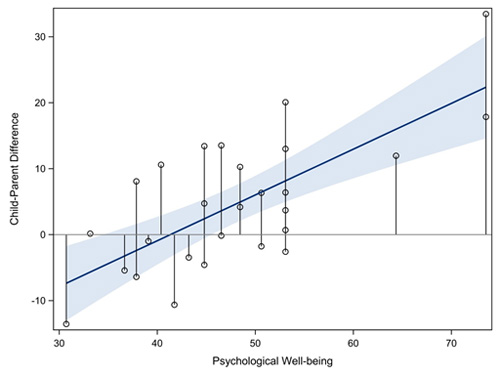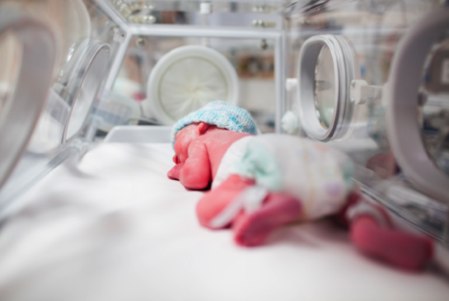-
Dr. Ferro Receives Award
Dr. Ferro has been awarded an Early Researcher Award from the Ministry of Research, Innovation and Science to study the determinants and outcomes of psychiatric readmission among youth. The five-year $140,000 (plus $100,000 in matching funds from the University of Waterloo and School of Public Health and Health Systems) award will be used to support […]
Continue reading -
New ARCH Lab Research
A new ARCH Lab paper entitled, Child- and parent-reported quality of life trajectories in children with epilepsy: a prospective cohort study was recently published in Epilepsia. In this first joint self- and proxy-reported trajectory study of health-related quality of life, findings confirm the heterogeneous outcomes for children with epilepsy and the primary importance of psychosocial […]
Continue reading -
ARCH Lab Contributes to Study of Self-esteem and Motor Skills
A paper by Poole et al. entitled, Early developmental influences on self-esteem trajectories from adolescence through adulthood: impact of birth weight and motor skills was recently published in Development and Psychopathology. The findings showed that in contrast to normal birth weight controls, differences in motor skill development did not affect the self-esteem from adolescence to […]
Continue reading -
ARCH Lab Student Publishes Paper
Ahmad Qadeer, an MSc student supervised by Dr. Ferro, recently published a paper in the International Journal of Adolescence and Youth entitled, “Child–parent agreement on health-related quality of life in children with newly diagnosed chronic health conditions: a longitudinal study”. Using data from the recently completed REACH Study, results showed that agreement between children newly […]
Continue reading -
New ARCH Lab Research
A paper by Conway et al. entitled, “Validating the shortened Quality of Life in Childhood Epilepsy Questionnaire (QOLCE-55) in a sample of children with drug-resistant epilepsy” was recently published in Epilepsia. The findings extend the robust psychometric profile of the QOLCE-55 in children with epilepsy, including those with severe, drug-resistant epilepsy. The QOLCE-55 is available […]
Continue reading -
ARCH Lab Contributes to Study of Extremely Low Birth Weight Survivors
A paper by Dobson et al. entitled, “Socioeconomic attainment of extremely low birth weight survivors: the role of early cognition” was recently published in Pediatrics. The paper demonstrated that childhood cognitive abilities partially mediated associations between birthweight status (extremely low vs. normal) and adult income attainment. Early life cognition is a critical predictor of socioeconomic […]
Continue reading -
ARCH Lab Contributes to Study of Measuring Mental Disorder
A paper by Boyle et al. entitled, “Classifying child and adolescent psychiatric disorder by problem checklists and standardized interviews” was recently published in the International Journal of Methods in Psychiatric Research. The paper discussed the need for research on the adequacy of self-completed problem checklists to classify child mental disorder based on proxy assessments by […]
Continue reading -
ARCH Lab Welcomes MSc Student
Welcome to Jennie Tang who is joining the ARCH Lab as an MSc student in the Public Health and Health Systems program. Under Dr. Ferro’s supervision, Jennie will be using epidemiological data to examine the potential moderating effect of age on the association between having cancer and a psychiatric disorder.
Continue reading -
New ARCH Research
Two new ARCH Lab papers have examined long-term psychosocial outcomes in adults born at extremely low birth weight. The first paper, entitled, “Prenatal betamethasone exposure and psychopathology risk in extremely low birth weight survivors in the third and fourth decades of life” was published in Neuroendocrinology and showed that extremely low birth weight survivors who […]
Continue reading -
ARCH Lab Contributes to Study of CBT
A paper by Van Lieshout et al. entitled, “Evaluating the effectiveness of a brief group cognitive behavioural therapy intervention for perinatal depression” was recently published in the Archives of Women’s Mental Health. The study tested whether group cognitive behavioural therapy (CBT) is effective in women with perinatal depression and psychiatric comorbidities. Eighty percent of women […]
Continue reading










